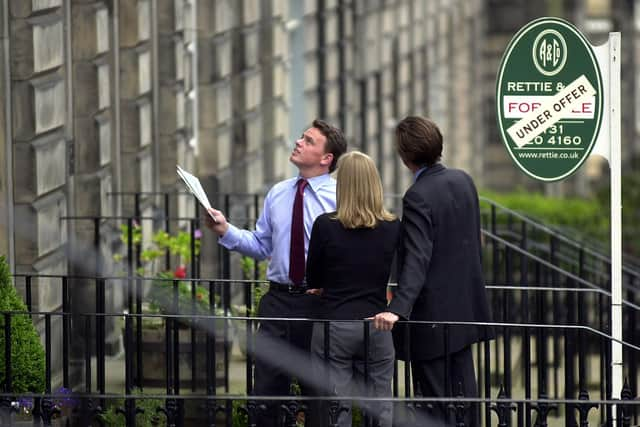Property is still a good hedge against inflation - David Alexander


There is just one big question mark on the horizon – the possibility of a return of inflation, not just by a couple of percentage points per annum above the “norm” but by the kind of double-digit rises not experienced since the end of the 1970’s.
I am old enough – just – to remember the astronomical rise in retail prices that occurred during that decade, followed by equally-astronomical wage claims as workers desperately sought to retain the real value of earnings but ended up running just to stay still. (In August 1975, year-on-year price inflation reached 27 per cent). Among the greatest losers were retired people on fixed incomes, including many middle-class types who had a private pension as well as that provided by the State and/or were invested in a stock market which performed poorly over several years.
Advertisement
Hide AdAdvertisement
Hide AdBack then the driving force behind inflation had been two separate major spikes in the price of oil, the result of war and ongoing tension between Arabs and Israelis in the Middle East, although there were also domestic factors at play in the UK, one of them being trade union militancy.


The fear now is that inflation will be fuelled by excess spending by national governments seeking to normalise society after the pandemic. Pessimists point to an already worrying trend in the United States which they believe is likely to cross the Atlantic. Another concern is inflation fuelled by public demand for consumer goods in short supply, partly as a result of the pandemic.
In the United Kingdom there can be no greater example of the relationship between inflation and the law of supply and demand than that provided by housing market. However this example is different from other “consumer-driven” inflation because it does not always go with the flow. There are times when house prices have stalled, or even fallen, while the rest of the economy has been performing rather well. Conversely, as has been witnessed most recently, prices have soared while the country has experienced its most serious pandemic in over 100 years, millions of workers are having their salaries largely paid for by the government and there is much fear over long-term job security in many parts of the private sector.
However, these “peaks and troughs” actually paint a rather positive figure because despite cyclical rises and falls, house price inflation has been relatively-healthy over longer periods. Therefore capital values have risen in real terms (i.e. before taking account of inflation) but not excessively so. The word “relatively-healthy” has been chosen carefully; it is in the interest of no one – vendors as well as buyers –for prices to let rip because eventually they will find themselves running to stay still, just like those 1970s workers who soon found their “inflation-beating” pay awards eaten into – by even higher inflation.
Food for thought, therefore, for anyone thinking of entering residential investment or, for that matter, withdrawing from it. Given the right choice of location, even with zero rental income a property’s capital appreciation alone should provide a return above inflation or, at the very least, match it, thus avoiding any real loss – something that cannot be said for conventional savings at today’s derisory rates.
In other words, at best it provides a real return, at worst it’s a safety net.
Of course the best scenario –and that still experienced by most landlords - is the “overall return” provided by a combination of sustained capital growth and regular rental income. However income has always been the icing and capital growth the cake. And at a time of uncertainty one should never underestimate the underlying value – and bottom-line security – of the cake.
David Alexander is managing director of DJ Alexander
Comments
Want to join the conversation? Please or to comment on this article.